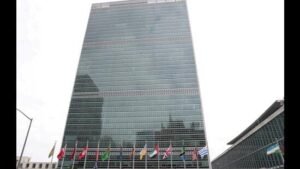
A few weeks ago, in October, the Supreme Court refused to quash an FIR, registered by the Uttar Pradesh (UP) police, against the folk singer Neha Rathore. Rathore had published various tweets in the aftermath of the Pahalgam attack. Following this, the UP police booked her for various offences, including “endangering the sovereignty, unity, and integrity of India”, for these allegedly “provocative” posts. Rathore first approached the high court, which denied her relief, and then the Supreme Court, which also denied her relief.

This case marks the latest instance in a disturbing trend of the higher judiciary failing to protect citizens from the abuse of State power, simply for exercising their constitutionally guaranteed rights.
In all these cases, judges appear to be more concerned about hectoring citizens for what they have said, written, or tweeted online, rather than performing their core function of enforcing the law and the Constitution.
As far as the law goes, the position is quite clear. Article 19(1)(a) guarantees to all citizens the right to freedom of expression. This right can only be restricted by a law, which imposes a “reasonable restriction” in the interests of the sovereignty and integrity of India, the security of the State, public order, decency or morality, and so on. Over the years, courts have interpreted these clauses in order that the free speech of individuals not be left at the arbitrary whims and fancies of police officials, or for that matter, the predilections of individual judges. Indian constitutional law follows what is known as the “incitement standard”. That is, speech that constitutes incitement to violence, or to public disorder, or to unlawful action, can be legitimately proscribed and punished.
The issue with such speech is not necessarily its content, but that it is more or less indistinguishable from acts of violence themselves: What the Supreme Court has referred to in the past as a “spark in a powder keg.”
Short of incitement, however, it is the business of neither the State, nor of the courts, to police what citizens say. It is not the task of the State or the courts to force individuals to say or think the “right” or desirable things. The reason for this is obvious: Regimes that attempt to impose a single truth upon their citizenry have been responsible for some of the worst atrocities known to history.
For this reason, when the police files an FIR invoking sections such as “endangering the sovereignty, unity, and integrity of India”, it is the duty of the courts to carefully scrutinize what has actually been said, and to assess whether it has met the incitement standard. The question is not what the judges on the bench think of the speech, whether they like it or dislike it, whether they agree or disagree with it, or whether they find it uncouth, in bad taste, or insulting. The only question is whether the speech is illegal, under well-defined constitutional standards.
However, in recent cases — topped off, as noted, by Rathore’s case — courts evidently blur these questions, and substitute their own dislike or discomfort with speech for the question of legality. This was clearly evident a few months ago in Ali Khan Mahmudabad’s case. Mahmudabad was arrested, imprisoned, and spent time in custody before being released for writing a Facebook post in the aftermath of the Pahalgam attack. Even then, the Supreme Court appointed a special investigative team to “analyse” the content of his Facebook post.
When the judiciary joins the police in not merely protecting citizens who exercise their right to free speech, but actively enabling legal proceedings against them, the end result is a national chilling effect.
Citizens will self-censor and refrain from speaking, since just about any departure from the prescribed consensus could potentially result in a police FIR, followed by the judiciary’s refusal to intervene. At best, the individual will then be dragged to court for months, or even years, in a long-drawn-out trial; at worst, they will be imprisoned for an indefinite duration before they are allowed out on bail.
It is worth remembering that our courts are meant to function as courts of law, not courts of moral, social, or public opinion. Their task is to enforce the law, and not to discipline or punish individuals who, in their view, have said the “wrong” thing, or to try to shape individual opinion.
In this context, the judges’ views on the rights and wrongs of what an individual has said should play no role in their adjudication of the case before them. Judges could vehemently disagree with what an individual has said, while recognizing that there is no cause for their prosecution by the State under criminal law.
The Neha Rathore case, however, and others like it, show that there is still a way to go before free speech cases are adjudicated like this. In the meantime, for the folk singer, and for many others like her, the process will remain the punishment.
Gautam Bhatia, a Delhi-based advocate, is the author of Offend, Shock or Disturb: Free Speech Under the Indian Constitution. The views expressed are personal




